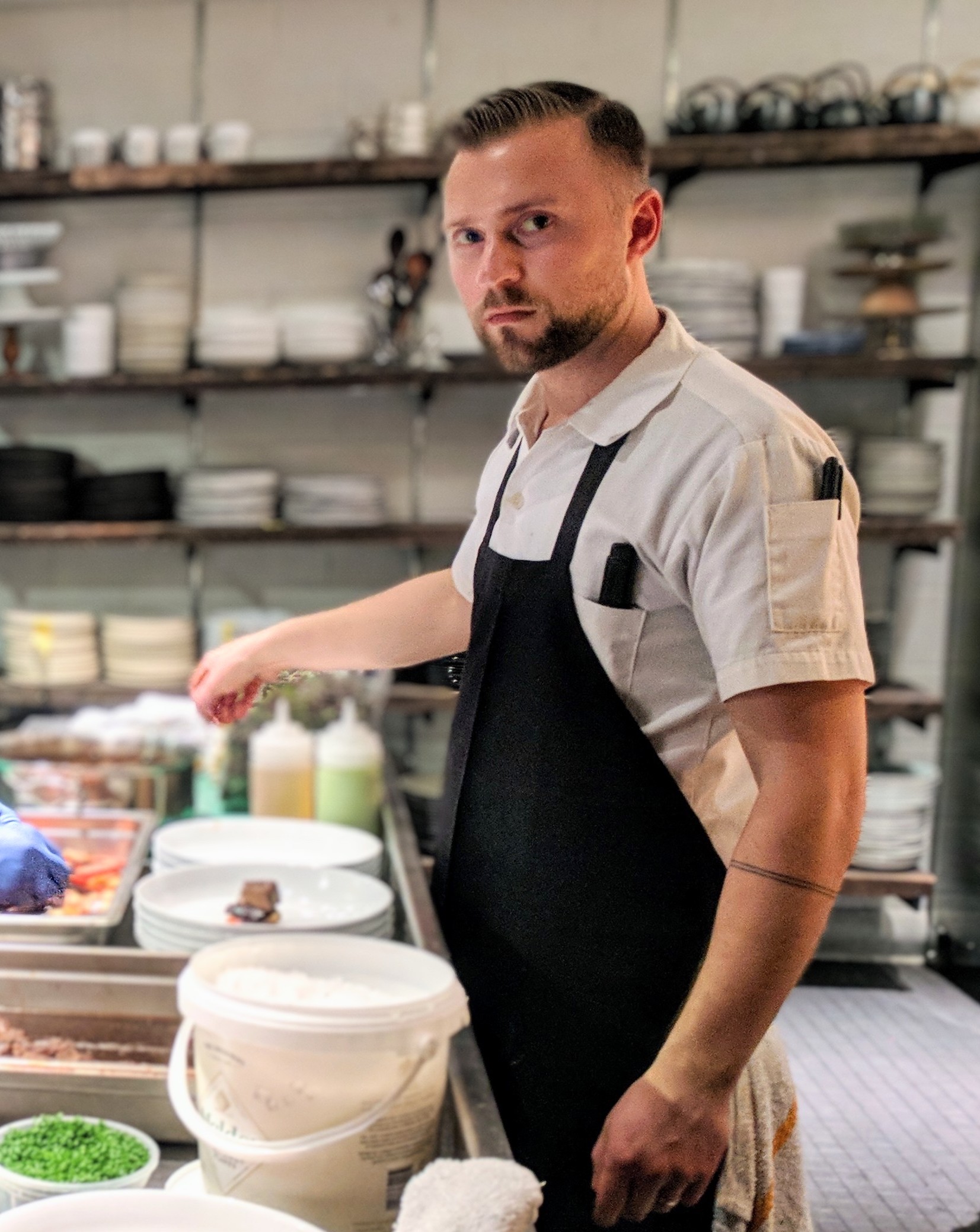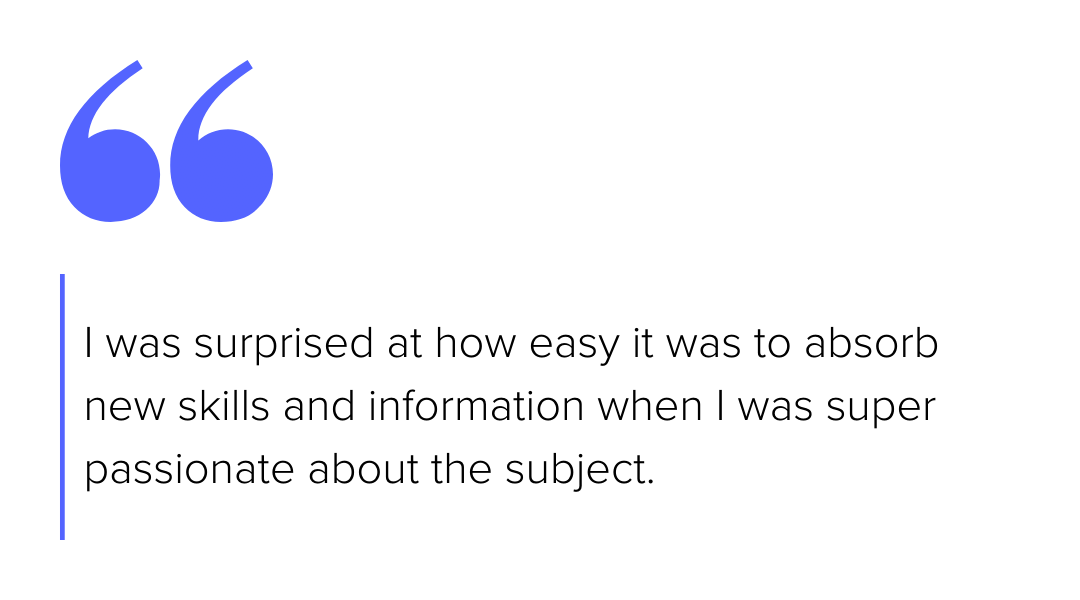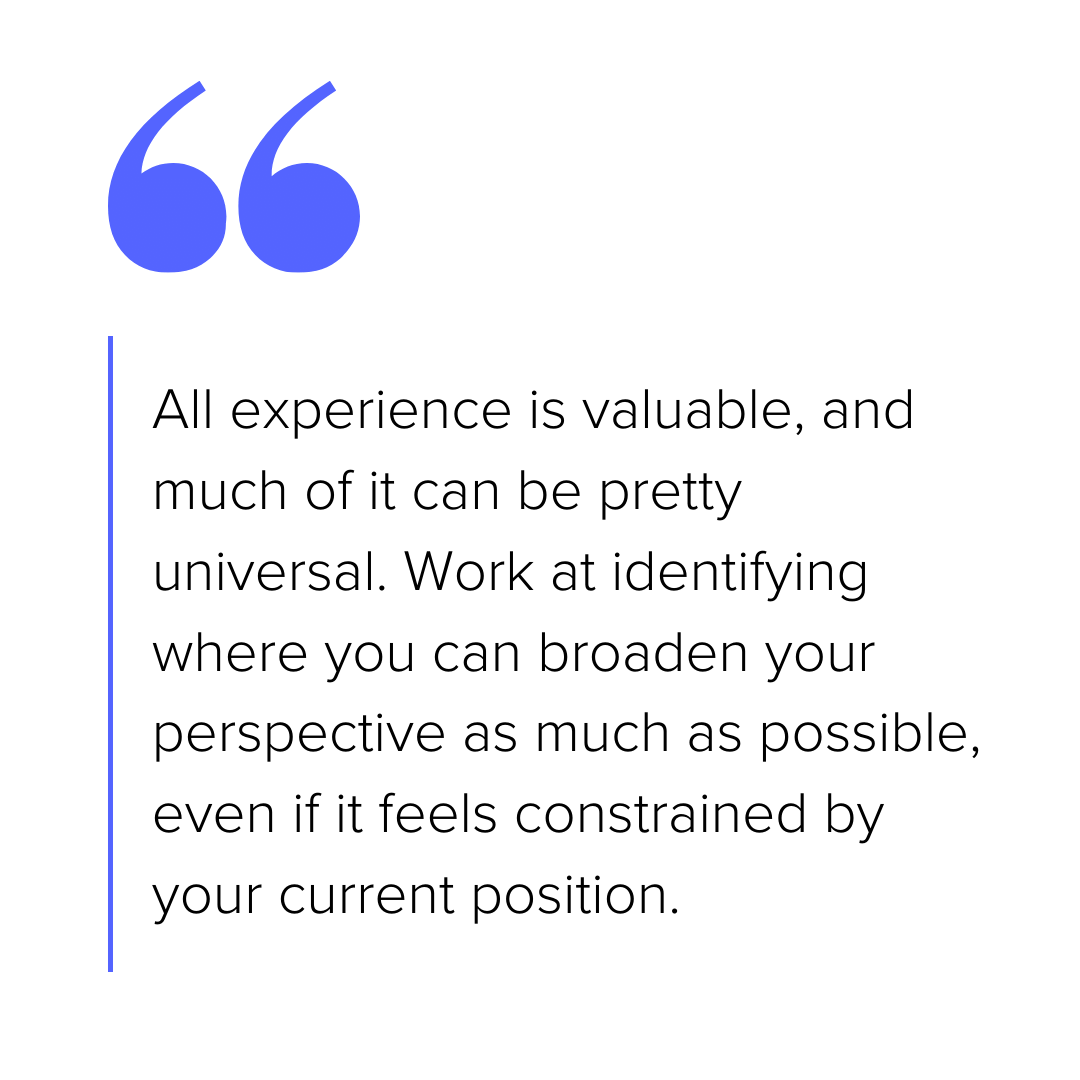Career changes don’t always happen because we’re unhappy with the path we are on.
Sometimes, our life circumstances change and the demands of the job don’t align with what we need at the moment. Maybe your family is growing, so you need more flexibility. Maybe you have to make a cross-country move to a place that lacks jobs in your niche. Perhaps you’ve hit a ceiling on earnings and want to explore higher-paying opportunities.
Whatever the reason, leaving behind a career that you love can be bittersweet. The good news is that there can be just as rewarding opportunities on the other side.
In this edition of our Inspiring Career Changes series, we spoke to Sam Larson who left the food industry to pursue data reporting— even though he loved what he did.
The beginning: Joining the family butcher business

Sam Larson was no stranger to the life of a butcher. Growing up, his family owned a butcher shop, and, after nearly completing college at the University of Michigan, he dropped out to join the family business.
During his time there, he helped his family grow into a three-storefront operation.
“We butchered whole animals, sourced from local farms, and helped develop a lot of local food infrastructure across the state!” Larson explains. “In total, we owned the butcher shop for about 15 years until we had to close.”
From there, he leveraged his food industry connections to consult with distributors until landing a job butchering in a restaurant. That led to meeting a business partner and building and opening a full-service restaurant and butcher shop.
But shortly after the restaurant opened, life circumstances for Larson and his wife changed: They welcomed their first baby!
Changing circumstances— and careers
Larson loved the work that he did, but the hours were demanding.
“Deciding that working 70+ hour weeks and losing evenings and weekends wasn’t going to be good for the family, I ended up re-enrolling at UM to finish my degree to hopefully pivot into a role that wasn’t directly tied to the food service schedule,” Larson explains.

He planned to orient himself on track for an MBA and add some credentials to the entrepreneurial and operations aspects of his career. This, in turn, would hopefully help him land a business analyst-type role with a flexible schedule.
However, his education inspired a different path.
“While focusing on developing my data science skills, I ended up in a Political Psychology seminar and absolutely loved it,” he says. “This inspired a shift towards the social sciences broadly, and survey methodology specifically.”
Balancing classes, family time, and a third-shift job was difficult. But doing something that he found interesting made learning new skills easier.
“I was surprised at how easy it was to absorb new skills and information when I was super passionate about the subject.”
Transitioning skills between careers
Today, Larson works as a Data Reporter at Stacker Media. One may think that the overlap between butchering and data reporting would be slim, but Larson has found his experience useful.

“Having worked throughout the entire food industry— producers, processors, distributors, retailers, restaurants— I really developed the skills to analyze organizations in their entirety, and identify pain points, efficiencies, and many interconnected workflows and relationships that are often hidden to those with more limited experiences,” he explains.
On top of that, his former career taught him to appreciate the perspective that everyone brings to the table.
“I also developed a lot of respect for people from all walks of life, from farmhands and dishwashers to finance bros and master chefs. Everyone has valuable life experience.”
Advice for others making a career shift
If he had to change anything about his career transition, Larson says he wouldn’t because he loves where he’s at right now.
However, he would give his past self several pieces of advice.
“There is some work I could have done back in the butcher shop days to really embrace some business technology and data science-y things that would have applied to my career now,” he says.
On top of this, he regrets not maintaining his food industry connections.

“I also wish I had maintained the connections with my food industry folks throughout the switch. As it happened, I really disappeared for a couple years. It’s hard to rekindle those kinds of relationships when you’re not slinging beef ten hours per day side-by-side.”
If he had to give one piece of advice to someone thinking about making a big career change, it would be to look for opportunities to broaden your perspective.
“All experience is valuable, and much of it can be pretty universal. Work at identifying where you can broaden your perspective as much as possible, even if it feels constrained by your current position.”
As for his future, Larson wouldn’t say that the food industry days are completely behind him.
“I loved working with food–connecting with growers and producers, educating consumers, sharing 5-star meals–and I hope someday I can get back into that industry,” he says.
This just goes to show that careers are anything but linear. In some cases, you may find yourself back where it all started!

Looking for more inspiring career change stories?
Visit our blog to learn more from people who have taken the leap into a new career.
